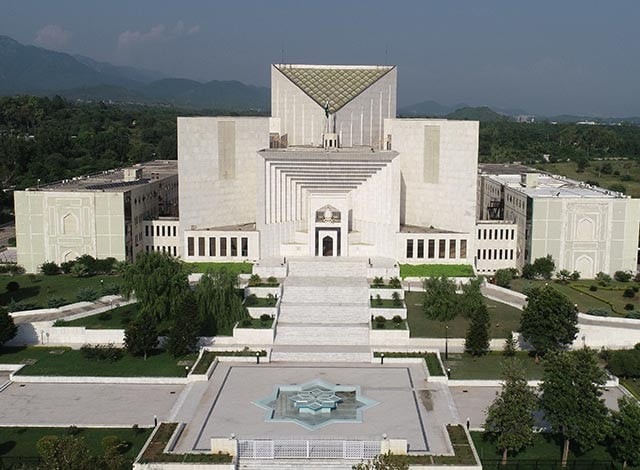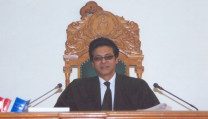Law on phone tapping is vague: SC judge
Bench postpones plea for probe into election rigging

Judges on the Constitutional Bench of the Supreme Court on Wednesday raised queries about the legislation regarding phone-tapping procedure and authority in the country, observing that the current law on the subject was vague.
The seven-member bench, led by Justice Aminuddin Khan, also dismissed three petitions related to alleged rigging in the elections, while it adjourned a petition for forming judicial commission for investigation into the alleged rigging in February general election until after the winter vacations.
At the outset of the hearing of the phone-tapping case, Justice Muhammad Ali Mazhar asked whether there had been any legislation regarding phone tapping. The additional attorney general (AAG) replied that the law had been in place since 2013.
According to the law, the AAG told the court, the Inter-Service Intelligence (ISI) and the Intelligence Bureau (IB) were notified, adding that the procedure for phone-tapping, including judicial supervision, was also available in the law.
On that Justice Jamal Khan Mandokhail said that the law on phone-tapping was vague. He told the AAG that the court was not interested in reports or law, rather it wanted results. He added that this case would have impact on many pending cases.
Justice Mazhar asked whether a judge had been notified, as according to the law, only a judge could give permission for phone-tapping. The AAG replied that he was not aware of the nomination of any judge. Justice Mazhar said that the law did not allow everyone to tap every phone.
The advocate-on-record told the court that the applicant in this case could not be contacted, while his lawyer had also passed away. The court adjourned the hearing after issuing a notice to the advocates general.
The bench heard the petition of the Pakistan Tehreek-e-Insaf (PTI) seeking establishment of a judicial commission to probe into the alleged rigging in the general elections. Lawyer Hamid Khan requested the bench to reschedule the matter after the winter vacations. The court accepted the request and adjourned the hearing.
The bench also directed that a similar petition by PTI leader Sher Afzal Marwat would also be scheduled for hearing after the vacations. It said that the objections raised by the Registrar's Office on both those petitions would remain and petitions would be taken up with those objections.
The bench, however, dismissed three petitions related to alleged rigging on the grounds of non-pursuance by the petitioners. The petitioners Malik Qayyum Khan, Mahmood Akhtar Naqvi and Mian Shabbir did not appear in the court.
The case related to the electronic voting system was disposed of after the Election Commission of Pakistan (ECP)'s top law officer informed the bench that the system was used in the 2018 by-election in light of a court decision and a report was submitted to parliament.
During another case, pertaining to a swimming pool complex, the applicant told the bench that he was asked to deposit Rs45 million in the dams fund, which he did. Justice Mandokhail said that if someone did not want to make deposits in the dams fund, how could the court ask him to deposit money.



















COMMENTS
Comments are moderated and generally will be posted if they are on-topic and not abusive.
For more information, please see our Comments FAQ